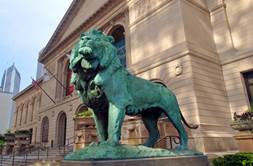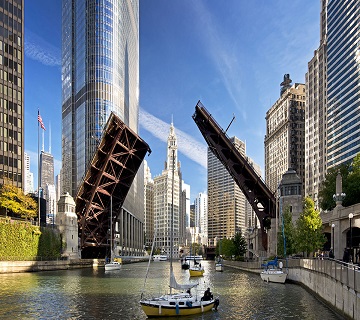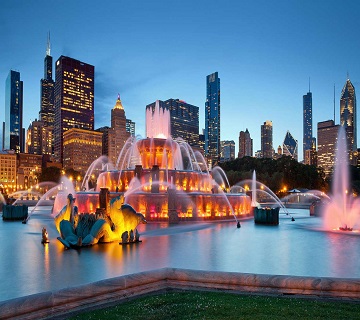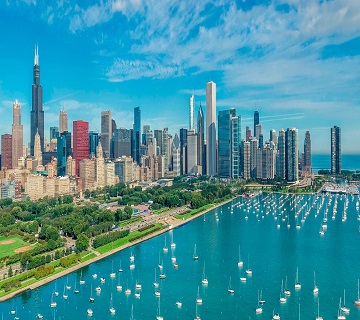Venue & Hospitality



City Highlights
About City
History of Chicago, Illinois. In 1779, Jean Baptiste Point du Sable, a Haitian, built the first permanent settlement at the mouth of the Chicago River. Under the terms of the Treaty of Greenville in 1795, the Potawatomi Indians ceded a tract of land, six miles square, at the mouth of the Chicago River.
The history of Chicago, Illinois, has played a central role in American economic, cultural and political history and since the 1850's has been one of the most dominant Midwest metropolises. The area's recorded history begins with the arrival of French explorers, missionaries and fur traders in the late 17th century and their interaction with the local Pottawatomie Native Americans. There were small settlements and a U.S. Army fort, but the soldiers and settlers were all driven off in 1812. The modern city was incorporated in 1837 by Northern businessmen and grew rapidly from real estate speculation and the realization that it had a commanding position in the emerging inland transportation network, based on lake traffic and railroads, controlling access from the Great Lakes into the Mississippi River basin.
The first European settlement on the present site of Chicago was the Mission of the Guardian Angel. Established in 1696 by Father Francois Pinet, a Jesuit priest, it was abandoned in 1700. In 1779, Jean Baptiste Point du Sable, a Haitian, built the first permanent settlement at the mouth of the Chicago River.
Venue



